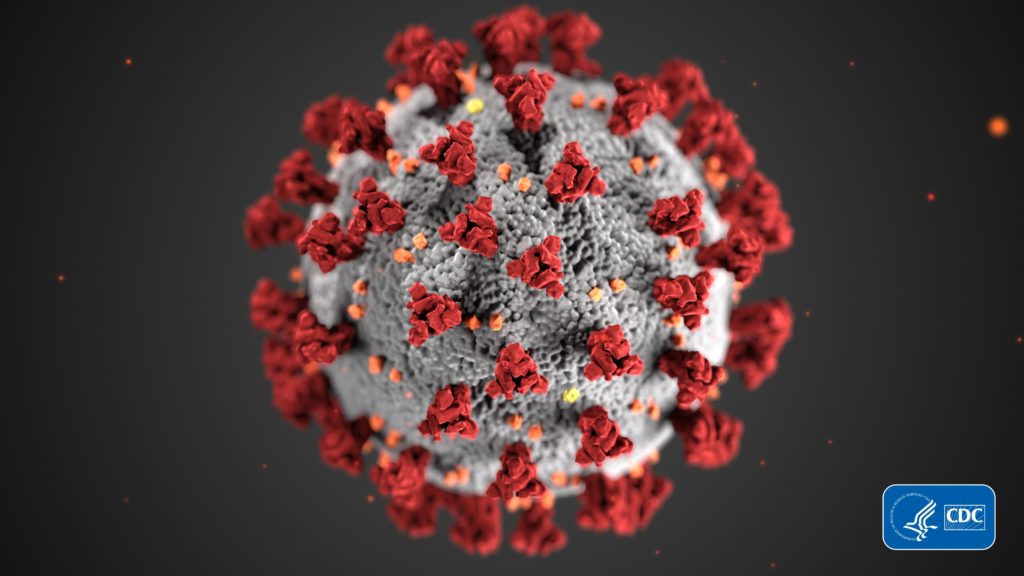
COVID-19: MSOs, CDC talk sanitation precautions; resources on HR, small-biz issues available
By onBusiness Practices | Education | Legal | Market Trends | Repair Operations | Technology
National concerns over the COVID-19 coronavirus ultimately might trickle down to impact the day-to-day operation of a body shop in ways a shop owner, customer or employee might not have considered — but potentially should.
Here’s some ideas and resources for body shops.
Sanitation
The Centers for Disease Control offers a webpage with a great deal of general advice for business during the coronavirus issue. As of Tuesday, that roundup had last been updated Feb. 26.
The CDC also offered guidance here for cleaning a business’ surfaces if someone suspected or confirmed to have COVID-19 coronavirus visited. As of Tuesday, that webpage had last been updated March 6.
“Based on what is currently known about the virus, spread from person-to-person happens most frequently among close contacts (within about 6 feet),” the CDC wrote. “This type of transmission occurs via respiratory droplets. Transmission of novel coronavirus to persons from surfaces contaminated with the virus has not been documented. Transmission of coronavirus in general occurs much more commonly through respiratory droplets than through fomites. Current evidence suggests that novel coronavirus may remain viable for hours to days on surfaces made from a variety of materials. Cleaning of visibly dirty surfaces followed by disinfection is a best practice measure for prevention of COVID-19 and other viral respiratory illnesses in community settings. …
“• If surfaces are dirty, they should be cleaned using a detergent or soap and water prior to disinfection.”
“• For disinfection, diluted household bleach solutions, alcohol solutions with at least 70% alcohol, and most common EPA-registered household disinfectants should be effective.
“° Diluted household bleach solutions can be used if appropriate for the surface. Follow manufacturer’s instructions for application and proper ventilation. Check to ensure the product is not past its expiration date. Never mix household bleach with ammonia or any other cleanser. Unexpired household bleach will be effective against coronaviruses when properly diluted.” (Minor formatting edits.)
The Occupational Health and Safety Administration describes when a business should record a workplace-related case of COVID-19 here. It also recently published “Guidance on Preparing Workplaces for COVID-19.”
The Alliance of Automotive Service Providers of Minnesota has released advice for shops from Complete Health Environmental and Safety Services. The CHESS documents cover coronavirus planning and the risk from a customer’s vehicle.
Caliber, the nation’s No. 1 collision repairer with more than 1,000 facilities, on Monday afternoon told us about a sanitation process that includes requesting customers remove personal items from vehicles.
“Thank you for thinking of Caliber,” the company wrote in an email. “We understand that, with the outbreak of COVID-19, many may be wondering what steps or preventative measures companies like ours are taking to ensure the health and safety of not only our customers, but our teammates as well.
“At Caliber, the health and safety of customers and teammates alike are our highest priority. As such, Caliber will continue to follow the guidance of the CDC, as well as local and national public health officials as we adjust our business practices to address the outbreak of COVID-19.”
“Here’s a list of preventative measures Caliber has established to protect our customers and teammates:
“• Centers are cleaned and disinfected twice daily. In addition, customers’ vehicles are disinfected after all repairs are completed.(Incidentally, we’re asking that all customers remove all personal items from vehicles at drop-off.)
“• Our teammates respect your space and will greet customers warmly, without a handshake. We’ll allow for adequate space between our teammates and customers (3-6 feet) during in-person interactions, and will provide digital paperwork if customers prefer.
“• Our teammates also are dedicated to hand-washing between personal interactions, and as many times as possible throughout the day. We’re encouraging our customers to join us with frequent hand-washing and the use of hand sanitizers.
“• If customers become sick, we ask that they please visit our centers at a future date, stay home and seek advice from their health care provider.”
“The overall COVID-19 situation, as you can appreciate, is fast changing. We’ll keep you posted if/when there’s any news from our end.” (Minor formatting edits.)
Service King’s website on Tuesday told customers about a sanitation regimen including detailers wearing respirators.
“As growing concerns continue to rise around the Coronavirus (COVID-19), your safety is our top priority. We remain committed to serving you and continuing to actively ensure the cleanliness of our facilities for the health of Service King customers and teammates,” Service King wrote.
“We are closely monitoring new information and recommendations advised by the Center for Disease Control and Prevention and other public, national reports. While there are no confirmed cases of COVID-19 at Service King, we are taking all necessary steps to keep our teammates and customers healthy and prevent the virus from spreading. Outlined below are some of the precautionary measures Service King has implemented:
“• We continue to encourage our teammates to practice social distancing and take the proper hygienic steps outlined by the CDC to include washing hands regularly, avoid touching one’s face, avoiding handshakes, etc.
“• High touch areas are properly disinfected at least three times a day, to include the disinfection of surfaces (like doorknobs, tables, desks, counters, and handrails).
“• Service King has implemented a specific protocol for the sanitation of each customer’s vehicle. All Service King Detailers will be provided respirators to wear during final car cleaning and must execute mandatory procedures to disinfect cars both at the time of intake and return. Doing so will protect our teammates while providing our customers confidence that the returned vehicle is sanitary.
“As always, you can schedule an appointment through the Service King website. There, you can also utilize live chat functionality and receive updates through our real-time repair tracker to check the status of your vehicle.
“We will continue to follow the Coronavirus impact and adjust our plan, procedures, and communications as needed. We are dedicated to prioritizing your well-being, and thank you for being a valued Service King customer.” (Minor formatting edits.)
CARSTAR, whose franchisees are all independent businesses, on Monday shared with us one account from a Missouri shop owner:
“Amid COVID-19 concerns we, as a small family owned business want you to know that we will continue to remain open, and welcome you to come in,” Jungerman CARSTAR wrote on Facebook on Sunday. “We have sanitized the entire office and shop area. We will sanitize several times throughout the day and maintain a safe environment for everyone.
“We will offer new options for our customers if they choose, they may drop their keys in an envelope from our drop box stand, please sign the envelope and we will fix your vehicle without you having to come in the building.
“As for estimates, we will offer you the opportunity to email in photos of your vehicles damaged area, vin number and contact information… We will then email you back the estimate as soon as possible.
“CARSTAR Jungerman will absolutely still welcome you to come in the building. We just ask after we gather your information that you just wait in your vehicle and we will bring your estimate out when we have completed writing it. Thank you for understanding during these new and difficult times. We will continue to provide great service and still be safe for all of us.”
Human resources issues
Collision industry human resources attorney Cory King said his firm FordHarrison has devoted numerous attorneys to a COVID-19 task force to keep up with the “bazillion different issues” raised by the coronavirus. He noted that in the short time we spoke Monday, he’d already received 14 new emails related to COVID-19.
The company has compiled a list of resources for employers here.
“Businesses are working hard to develop contingency plans, while trying to balance health risks, employee concerns, and running the business,” the firm wrote on its website. “FordHarrison is working closely with clients on a daily basis to consider the business and employment issues every employer is confronting. Some of these issues include:
“• Employee attendance
“• Working remotely
“• Limiting travel
“• Leaves of absence
“• Whether and how to pay employees unable to work or quarantined
“• Staffing if schools are closed
“Multiple employment laws, including the ADA, FMLA, OSHA, NLRA, Title VII, FLSA, and a myriad of state and local laws.” (Minor formatting edits.)
FordHarrison also has already hosted two webinars for employers, replays of which are available. See the March 6 “Is Your Business Ready to Deal with Coronavirus (COVID-19)?” here and the March 13 “Home Care and the Employment Impact of Coronavirus (COVID-19)” here.
On Friday, employers are welcome to tune in at 2 p.m. ET for another webinar, “Coronavirus (COVID-19) Update – Is Your Business Ready for the Employment and Employee Benefit Changes?”
“Businesses in the U.S. need to be prepared to deal with COVID-19 in the workplace,” FordHarrison described the webinar. “Multiple employment laws are implicated, including the Americans With Disabilities Act, the Family and Medical Leave Act, the Occupational Safety and Health Act, the National Labor Relations Act, the Health Insurance Portability and Accountability Act, as well as Employee Assistance Programs, onsite clinics, and Telemedicine. We will also discuss the Family First Coronavirus Response Act and its impact on employers.”
The Department of Labor also has compiled a list of coronavirus resources for employers here.
Employers might in particular want to particularly examine the FAQs for employees regarding the Fair Labor Standards Act and Family and Medical Leave Act amid a coronavirus response.
Note: Some rules and assistance for employers and employees might change with the implementation of H.R. 6201, the “Families First Coronavirus Response Act,” and other legislation at the state and federal level. The coronavirus bill has passed the U.S. House and was before the Senate on Tuesday.
Small business help
The Small Business Administration also has compiled a list of resources and suggestions for the small businesses which make up much of the collision repair industry.
These include the potential for small business disaster loans of up to $2 million.
The agency also drew attention to certain small-business risks, such as:
• Capital Access – Incidents can strain a small business’s financial capacity to make payroll, maintain inventory and respond to market fluctuations (both sudden drops and surges in demand). Businesses should prepare by exploring and testing their capital access options so they have what they need when they need it. See SBA’s capital access resources. …
• Insurance Coverage Issues – Many businesses have business interruption insurance; Now is the time to contact your insurance agent to review your policy to understand precisely what you are and are not covered for in the event of an extended incident.
• Changing Market Demand – Depending on the incident, there may be access controls or movement restrictions established which can impede your customers from reaching your business. Additionally, there may be public concerns about public exposure to an incident and they may decide not to go to your business out of concern of exposing themselves to greater risk. SBA’s Resources Partners and District Offices have trained experts who can help you craft a plan specific to your situation to help navigate any rapid changes in demand. …
• Plan – As a business, bring your staff together and prepare a plan for what you will do if the incident worsens or improves. It’s also helpful to conduct a tabletop exercise to simulate potential scenarios and how your business management and staff might respond to the hypothetical scenario in the exercise. For examples of tabletop exercises, visit FEMA’s website at: https://www.fema.gov/emergency-planning-exercises (Minor formatting edits.)
More information:
CDC COVID-19 coronavirus webpage
Department of Labor coronavirus webpage
Small Business Administration coronavirus webpage
FordHarrison COVID-19 coronavirus task force links for employers
White House “Coronavirus Guidelines for America”
Images:
Virus particles from the first U.S. case of COVID-19 are seen in this transmission electron microscopic image. (C.S. Goldsmith and A. Tamin/Centers for Disease Control)
This Centers for Disease Control and Prevention image depicts a coronavirus. The novel coronavirus “Severe Acute Respiratory Syndrome coronavirus 2” (SARS-CoV-2) is linked to a respiratory illness first detected in Wuhan, China. The medical condition has been named “coronavirus disease 2019” (COVID-19). (Alissa Eckert and Dan Higgins/CDC)
COVID-19 coronavirus viral particles are colored blue in this transmission electron microscopic image. (Hannah Bullock and Azaibi Tamin/Centers for Disease Control)


